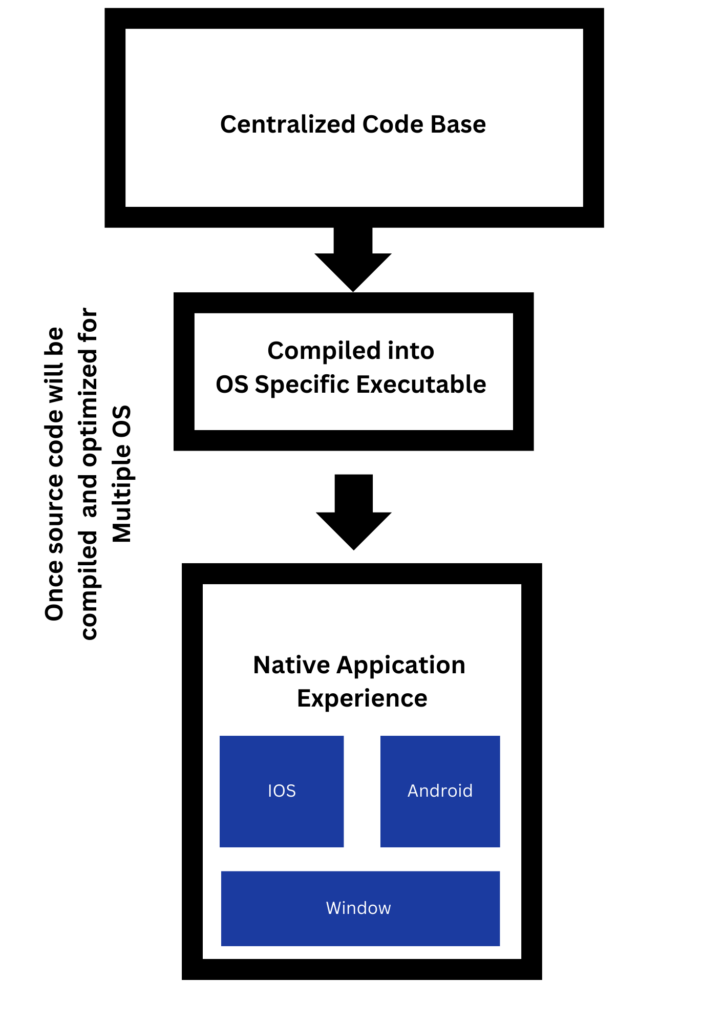Hybrid app development is a process of developing cross-platform apps for multiple OS with a single code base, in a hybrid app single code base needs to be developed and maintained.
With the same source code, multiple versions of apps compatible with specific Operating systems will be rendered. The point is to reduce the development, testing, and designing overheard and just centralize the whole operations under one development environment so that It offers the least effort to operate, manage, deploy, test, and distribute.
Many state-of-the-art hybrid app development frameworks are in place and the best ones are ionic, flutter flow, and a few more. Hybrid app development frameworks can be leveraged which may not have a steep learning curve like the one mentioned above.
Technology adoption in big tech companies is way more horizontal and vertical than in a big FMCG company or law firm as a matter of fact, so native code can be a bit tedious for organizations that don’t want to manage a big tech team for Android, iOS and windows so instead they switch to a one-stop shop and that is hybrid app development.
In order to deliver faster MVP and MSP at lower TTM with cost-effectiveness hybrid app is the best solution, as it fits the majority of the use cases that the native code can satisfy.
Hybrid apps makes it easier for an organization to maintain a code base securely as they have to maintain one source of truth instead of multiple code bases managed by multiple teams, hence hybrid development apps like Flutter offers a convenient collaborative platform and a huge set of resources that can be consumed by the responsible team and get work done.
Once the development and design overhead is reduced and design systems are integrated and centralised, this allots more time to be spent on taking care of business needs, optimizing the tech spending and workforce management.
Having clean code, a centralized code base, and converting them to multiple languages of choice with easy and intuitive processes is what hybrid solutions offer.
Nowadays all the major hybrid app development platforms are providing full device access, but in order to get full device access plugins need to be integrated. Hybrid app development frameworks provide cross-platform compatibility.
Hybrid platforms provide code re-usability which saves time and money, hence allowing businesses to have a better product-market fit and lower time to market. Benchmark testing has shown hybrid apps are providing high performance at par with native apps.Hybrid app development is a cost-effective process hence it is a better option when the organization wants it to be available across all the platforms but doesn’t want to manage and operate native teams.
NATIVE TEAMS are way more expensive than hybrid teams and the technologies don’t need constant upkeep, which is not the case in the case of Android and ios dev processes as they are complex in nature hence it is better to prefer an infra which is simpler and get’s the job done.
Diagrams


The article above is rendered by integrating outputs of 1 HUMAN AGENT & 3 AI AGENTS, an amalgamation of HGI and AI to serve technology education globally.